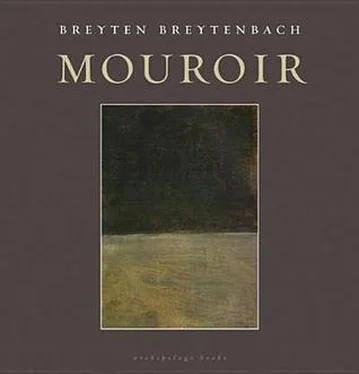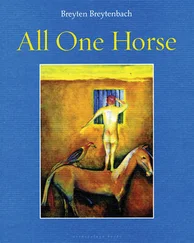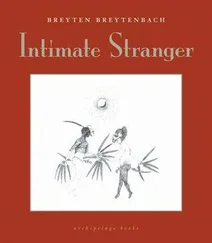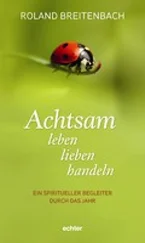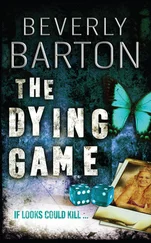He walks out on the afterdeck, turns his face aft. He wants to see the screws breaking frothily from the groan-waves. He particularly wishes to see which flag is pinned to this vessel, under what nationality they may be sailing, desiring to ascertain in this fashion perhaps their port of origin, their ultimate destination. High, lowing aloft, sputtering like a dying breath, there is this wind, higher than the rigging of the masts and the throbbing sea-black queendom of stars. High in the breath-hollows is the fluttering, the shuddering heart. A little hill-bird blown away over the wavetops now attempts to hide in the moving stillness. The deck is slippery.
Then only does he see, low in the night on the sea, quite close in the dark here, not much further than a scream away, rising in their wake, screw-thud by screw-thud exactly duplicated, the other ship .
The Double Dying of an Ordinary Criminal
Carpe diem, quam minimum credula postero. .
(i)
It is an unapproachable, ungrateful country. Along the coast, in an undulating green strip between the indigo sea and the ribbed, foaming mountain chain, the climate is tropical. There are sharks in the ocean and other fish large and small, dark coloured or of silver or ivory. On the land flamboyant trees grow, trees with shiny green fleshy leaves and violent outbursts of flowers: banana, palm, mango, the blossomy downpour of the bougainvillaea, the star-wounds of the poinsettia, the hibiscus with hairy dark ants most likely looking with sticky legs for sweetness in the calyx, canna, Ceylon rose. Nights the humid darkness is scented with the secretive magnolia, the camellia, the gardenia. The fruit are often fibrous, glutinous and soft. The trees — such as the guava — are enclosed by their particular smell, the heavy perfume of a full-bodied woman who has perspired a lot. The heat and the high humidity cause the milk to turn sour instantly, grow mould on the clothes strung on wires or kept in wardrobes, rot the wood while steel and iron are devoured by oxidation. To the north and west stretch the swelling sugar-cane plantations, the cane is cultivated and chopped by people of a dark race, people with large sombre eyes and smooth black hair. These people are sometimes called “sea kaffirs”. Here and there among the rippling and sharply whispering sugar-cane they erected rudimentary single-roomed temples for their gods, the inner walls decorated with bright representations: often the swarthy mother god, Kali, she who also at times assumes the aspect of Parvati or Sarasvati on the winged throne of a swan, or that of Shakti — the bride, companion and alter ego of Shiva the destroyer. On these plantations as also in the cultivated forests further removed from the ocean, where lumberjacks cut and saw the yellow and red trees, and elsewhere too, there is the constant flashing of many kinds of birds, butterflies, large insects with shimmering black bodies. As well as snakes. The cities service the ships which come to trade here, and the holiday-makers and pleasure-seekers come to relax on the guava-coloured beaches and to bathe in the tepid waves within the protection of the shark nets. When the barriers are raised the stuck sharks are there like white torpedoes. In the streets one encounters the many fumes of decomposition and dismantling, of viscosity and dry rot and sweetness; occasionally also the harsher tang of spices and seasoning herbs. There are night clubs and taxis and rickshaws. People smoke or use in other ways a rank stupefier commonly called dagga ; other names heard are bhang , “real rice”, gunja, jane , “Maryjay”, “rooney”, “DP”, “green stuff”, “weed”, “grass”, “dope”, “popeye”, “wheat”, “Tree of Knowledge”, insangu . It makes the eyes darker from within and red around the lids and it lies like a curly smokiness on the voice. It analyses the sense of time the way one would eat a fish morsel by morsel off the bone. It entices the appetite.
The Coast is separated from the Heartland by a chain of mountains which seem blue from afar, the mountains of the Dragon, hundreds of miles long, like the great wall of China with its watchtowers. The colours of the sun remain entangled mostly in the structure of the mountains. But some of this citadel’s summits are so high that they’ve lost all colour; they are dusted with a sparkle which could be snow or ice.
Beyond the mountains the Heartland commences, an inhospitable region, a semi-desert which further and deeper will silt up in a true desert of brown and grey dunes; unresting dunes. It is a high plateau with hardly any diversity and little vegetation apart from the grass which grows tall and becomes white like a bleached photo during the winter. Now and then there are crevices or denser ravines in the folds of the high country, something which can be held darkly in the hollow of the hand, or more elevated ledges, ridges and mesas. When summer comes gigantic cloud constructions wash over the land, are piled up, unchain in thunderstorms of a prehistoric force with coiling swords of electricity and smoking arrows of light, until the clouds crack and tear, the bottom gives way and flood waters are poured over the ochre earth. The people of this land are hard and obtuse and doughty — but cunning — as the earth and its climate require of them. Their eyes lie waiting deep and unflinching in the heads, robed in wrinkles under thick eyebrows, and when they lose their teeth quite early on, as happens often, the jaw muscles are tough and bitter. They cultivate the topsoil. They sow and reap maize with big red-painted tractors, ploughs and other farm implements. They keep numerous herds and flocks, Brahmans with awkward humps, or earth-red oxen with white horns spread very wide on either side of the head — Nguni or Afrikaners by name. These beasts constitute practically the only heritage left by an ancient yellowish race of humans with Asiatic features who wandered over these wastes in days of yore. The real wealth of the Heartland is hoarded under the earth’s crust where, when the earth still moved, layers and veins of gold were deposited, and copper, and further south also buried volcanoes, pipes and alluvial soil full of diamonds. Over these riches the people built their cities: glass, concrete, steel — rising from the desert to sometimes be split and obliterated again by fulminations from above. In the streets the long flat automobiles crawl, flashing the sun like heliographs; inside the vehicles are people who have absorbed too much food, with fantastic coiffures or moustaches pearling perspiration, and with knees spread wide. The other people without means of transport are of a darker hue and they trot along the sidewalks with long rhythmically flapping coat-tails, passing by the enormous shop windows. From these cities are ruled and administered the Coast, the South, the Mountain Fastnesses, the Old-Land, the Gap, the Middle State, the Frontier, the Reserves, the Desert, and other colonies and possessions.
He was born in the country of Coast and grew up there. Little has been documented concerning his juvenile years and not much touching on his adult life. His mother became very old and started wearing a black dress with thick woolen stockings. Her back was bent high between the shoulder blades. He was a tall and sturdy fellow with brown hair, slightly oily, falling straight over the forehead. His legs were hairy and when he deigned to smile only the left side of his mouth was tilted upwards with a minimal contraction of muscles. We don’t know whether he was interested in any sport. There is talk of a work he was supposed to have had, and of a wife; even children are mentioned. He was still young. Twenty-eight years old.
Hell doesn’t exist. It comes into being , each moment it is created relentlessly, and then it is strictly personal and individual, that is, proper to each individual — which doesn’t necessarily imply that others aren’t touched or concerned by it. As tubes of light the hells burst in the heavens and illuminate, alter, the area within their reach. The act, the misdemeanour then, a fraction in time, causes a chain reaction, a mutation eventually flowering in the fated echo or the obverse of it; a clandestine bleeding. Each crime contains the hell befitting it. The snake’s skin fits without any crease or pucker over the snake. When the felony is committed the hell opens up on the spot; when it at last — and often in public — bursts forth, it is redeemed. The one is an utterance of the other. The one eliminates the other.
Читать дальше
